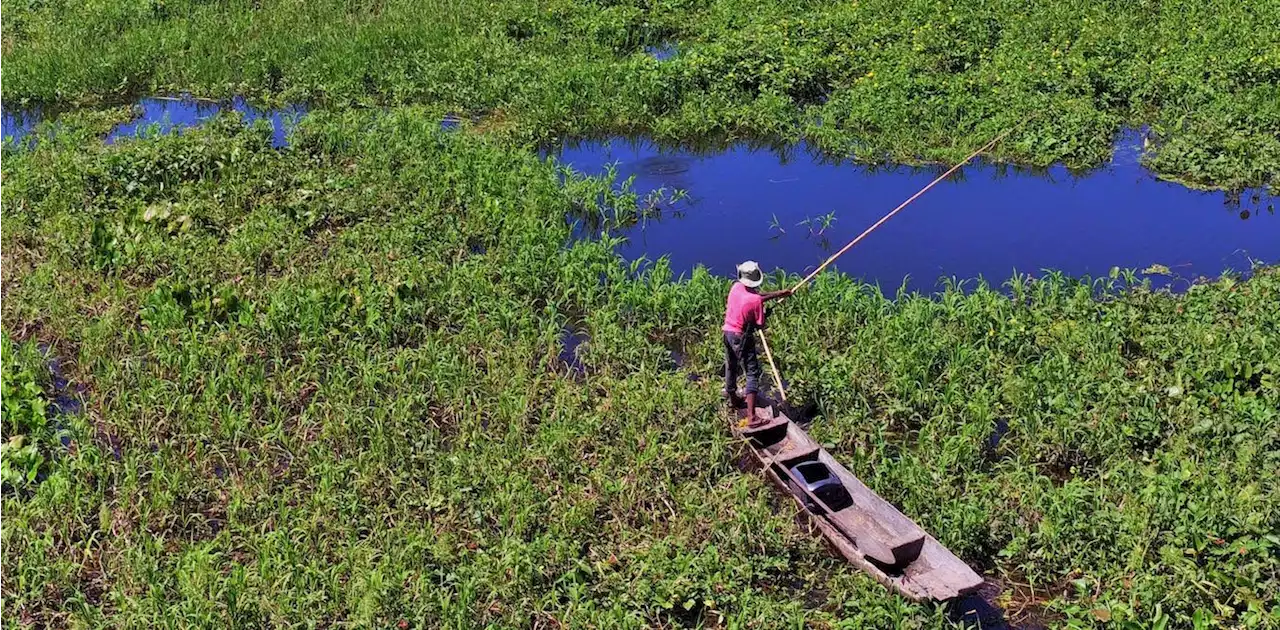'How can we use nature in a sustainable way?' That is a question I, together with colleagues from different parts of the world, have sought to answer for a decade. We are dedicated to studying issues related to the sustainable use of natural resources.
However, when we ask ourselves how humanity, which has inhabited the planet for around 300,000 years, has managed to get this far without exhausting all its resources, Game Theory itself suggests an answer. It points out that it is possible to avoid the"tragedy of the commons" by adopting a set of rules that regulate short-term choices. In other words, regulatory measures are needed to ensure that the pursuit of individual benefit does not harm society as a whole in the long term.
Initially, it was believed that only the state or private property laws could fulfill this role of protecting our natural resources. However, in the 1990s, Elinor Ostrom demonstrated that traditional communities, without private property or state intervention, were also able to prevent the collapse of natural resources. They developed their own rules to ensure long-term sustainable use, and these traditional systems were called"common property regimes".
All solutions to the problem of the tragedy of the commons are based on the idea of predictability. Agreements, rules and regulations are respected for the future benefits they can bring. In other words, society first recognizes the impact that the overuse of resources may have in the future and then implements measures to prevent the collapse of nature and everyone who depends on it. This presupposes that we understand and respect the complex dynamics of nature.
. This phenomenon causes specific areas to flood at different times. For the Pantanal's riverside communities who depend on fishing, this represents a highly unpredictable system. They need to determine, on a weekly basis, which bays and rivers they can access. In, we quantified that within an area of approximately 300 possibilities, only two or three bays will be suitable for fishing.
In order to understand how riverside communities survive in this system, we applied various methodologies, including ethnographic studies,
Australia Latest News, Australia Headlines
Similar News:You can also read news stories similar to this one that we have collected from other news sources.
 New Aluminum Radical Battery Promises More Sustainable PowerResearchers from Australia and China are working to develop the world's first safe and efficient non-toxic aqueous aluminium radical battery. Teams from Flinders University in South Australia and Zhejiang Sci-Tech University in China have reported the first stage of developing these novel batteri
New Aluminum Radical Battery Promises More Sustainable PowerResearchers from Australia and China are working to develop the world's first safe and efficient non-toxic aqueous aluminium radical battery. Teams from Flinders University in South Australia and Zhejiang Sci-Tech University in China have reported the first stage of developing these novel batteri
Read more »
 How Sustainable Fashion Can Help Save the PlanetCitySpace celebrates cutting edge conversations, adventurous art, innovative ideas. CitySpace is WBUR on stage. Convening leaders in all fields for an array of offerings — readings, interviews, debates, conversations, panels, podcasts, performances, story slams, theater, comedy, book clubs, demonstrations — CitySpace is the destination to be inspired, to be entertained, to be educated. Be part of the intimate audience or listen to the broadcast.
How Sustainable Fashion Can Help Save the PlanetCitySpace celebrates cutting edge conversations, adventurous art, innovative ideas. CitySpace is WBUR on stage. Convening leaders in all fields for an array of offerings — readings, interviews, debates, conversations, panels, podcasts, performances, story slams, theater, comedy, book clubs, demonstrations — CitySpace is the destination to be inspired, to be entertained, to be educated. Be part of the intimate audience or listen to the broadcast.
Read more »
![]() Starbucks explores replacing its iconic cup with sustainable alternativesIn the name of the environment and sustainability, the Starbucks disposable cup may be on its way to extinction.
Starbucks explores replacing its iconic cup with sustainable alternativesIn the name of the environment and sustainability, the Starbucks disposable cup may be on its way to extinction.
Read more »
 10 Lessons DC's New Batman Movie Can Learn From Ben Affleck’s BatmanDCU's new Batman can learn from Ben Affleck.
10 Lessons DC's New Batman Movie Can Learn From Ben Affleck’s BatmanDCU's new Batman can learn from Ben Affleck.
Read more »
 St. Benedict’s headmaster: Here are some incredibly important lessons our kids taught us'It's been an extraordinary journey,' says Fr. Edwin Leahy of St. Benedict's Prep.
St. Benedict’s headmaster: Here are some incredibly important lessons our kids taught us'It's been an extraordinary journey,' says Fr. Edwin Leahy of St. Benedict's Prep.
Read more »
 Lessons on Facing Loneliness from PhilosophyWisdom traditions teach the value of solitude for clarity and peace.
Lessons on Facing Loneliness from PhilosophyWisdom traditions teach the value of solitude for clarity and peace.
Read more »
